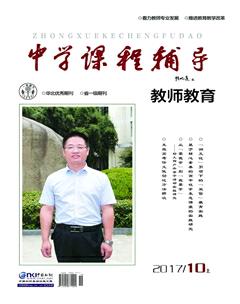在英语微写作中发展学生的思维能力
徐建刚
摘要:由于在小学阶段,学生对于词汇、语法等知识的掌握还处于初级阶段,完整地写作一篇文章可能还有一定的难度,因此,教师应根据学生的年龄段和知识水平,利用微写作这种方式,对学生进行写作训练,来发展学生的思维能力。
关键词:英语“微写作”;连贯性;具体性
中图分类号:G623.31文献标识码:A 文章编号:1992-7711(2017)19-091-1
英语写作,是一种综合性的思维活动,是学生对基础知识掌握程度的一种体现,也是学生思维品质的一种延伸。由于小学生英语词汇量很小,再加上他们的语言组织能力、写作能力比较薄弱,所以,如果一开始就对他们提出较高的写作要求,可能会导致收效甚微,欲速而不达。此时,教师引导学生进行“微作文”写作训练,不失为一种培养学生写作能力的好方法。下面笔者谈谈“微作文”写作的要求。
一、写得连贯,发展思维的流畅性
1.按时间描写
案例一、6A Unit 2 Think and write. 要求学生写出上周日和家人或者朋友做了什么事情。教师可以先通过以下问题来让学生进行讨论。1. What did you do in the morning last Sunday? 2. Where did you go? What did you do then? 3. When did you have lunch? What did you do after that? 4. When did you go back home? 5. How did you feel?结合学生的回答教师板书: in the morning, then, after that,同时,教师可以引导学生运用first, then, next, finally等学过的连词进行微写作。微写作作品:
I went to Changshu with my friends last Sunday. We went there at nine oclock in the morning by bus. First, we went to climb Yushan Hill, we saw many beautiful flowers there. We had lunch on the hill. After that ,we went to Shanghu lake, we played games together there. At about four in the afternoon, we went back home, we had a good time.
2.按空间顺序进行描写
案例二、6A Unit 6 Look and say.描写一间杂乱的房间。What makes the room dirty and messy?教师首先呈现房间图片,请学生说说看到了什么脏乱的地方,由于观察的方式和角度不同,学生的回答并无一定的顺序,教师可以根据学生的回答,按照空间的顺序在黑板上板书内容。接下来,教师呈现一些装垃圾或者杂物的器具,让学生将图片中的杂物垃圾归类到不同的器具中。(如书包,盒子,篮子,垃圾桶等)。然后根据所提供的句式...make(s) ... dirty / messy. To keep the... clean,we can...让学生进行写作尝试。最后,问学生What should we do in our daily life to keep our room clean?微写作作品:
The dirty clothes make the sofa messy. The rubbish makes the table dirty and messy. The toys, the socks, the books ,the crayons and the rubbish make the floor dirty and messy. To keep the room clean, we can put the dirty clothes in a box or a basket. We can put toys in the box too. We can put the books and the crayons in the schoolbag. We can put the rubbish in the bin. We should sweep the floor and clean the table every day. We should put our things in order.
二、寫得具体,发展思维的丰富性
1.有内容
任何一篇文章,如果没有实质的内容,就无法成为一篇好的文章,英语写作也是如此。在指导学生进行微写作的过程中,教师必须要重视文章内容的真实性,一定要从学生的生活实际出发,写具体的内容,这样才能让学生有话可说。比如学习完成6A Unit 3 My holiday后,教师可以顺势问学生:Where did you go on National Day? What did you see? What did you do? How did you feel?由于所问问题均是学生在过去的假期当中经历过的事情,他们就会有具体的内容所写。下面是其中一位学生的微写作作品。
My holiday
I went to Beijing with my parents for the National Day holiday. I saw many interesting things there.
I climbed the Great Wall on the first day. It was so tired to climb it, but we were very excited. We took many photos there.endprint
On the second day, we visited the Palace Museum and Tiananmen Square.
On the third day, we went to Beijing University and Qinghua University. I hope I can study there when I grow up.
We had a good time in Beijing. I hope to go there again.
2.有细节
在英语教材当中,有很多的根据图片写话的练习。教师可以引导学生观察图片的细节,将文章写具体。如五年级下册Unit 6 Checkout time中,要求学生观察各位同学在厨房帮忙的图片并结合现在进行时态说出各个人物在做些什么。学生们根据本单元所学内容,很容易地运用现在进行时态表达了各个人物所做的行为。...is / are doing...但是笔者觉得仅仅机械地完成课本内容还远远不够,可以利用这幅图让学生进行更细致的描写。因此在让学生表达完各个人物的动作之后,抛出了以下问题:1. When they are helping, how do they feel? 2. Why are they cooking so much food?让学生去找出图片当中的一些细节以及图片隐藏的一些信息。就得到了以下这篇微写作作品:
Today is Liu Taos birthday. He asks his friends to his home. Now they are helping Liu Taos mother in the kitchen. Mike is cooking a fish, he is good at cooking fish. Nancy is cooking soup, it smells nice. Yang Ling is cooking vegetables. Su Hai and Su Yang are making fruit salad. They work together. Wang Bing and Liu Tao cant cook, so Wang Bing is washing dishes and Liu Tao is cleaning. Liu Taos mother is watching them happily.
總之,学生的写作水平的提高是一个漫长的过程,绝不可能一蹴而就,教师要充分调动学生写作的积极性,结合学生的实际,给学生多创设微写作的机会,通过学生写作水平的提高,提升他们的英语能力,发展他们的思维能力。endprint

